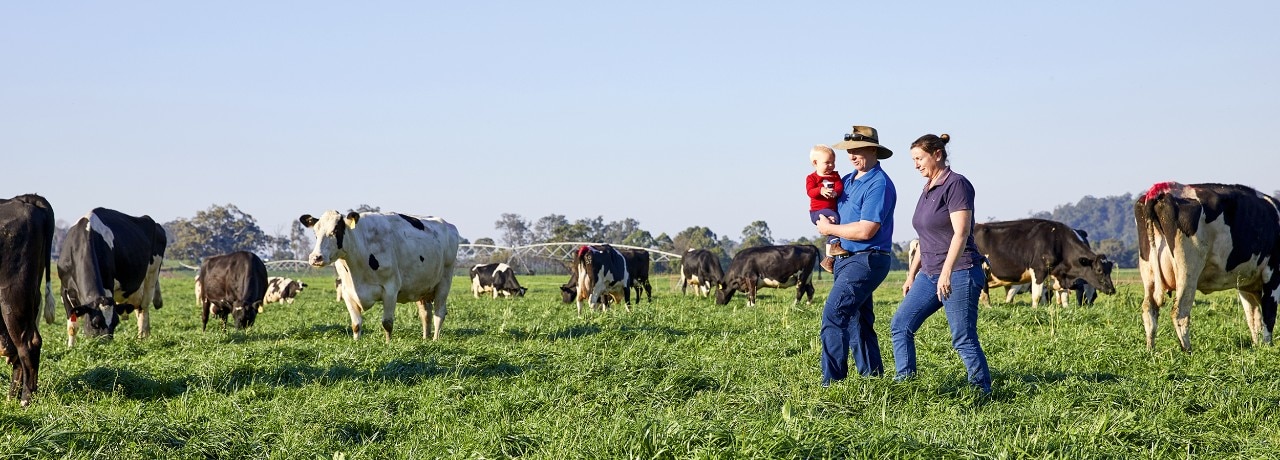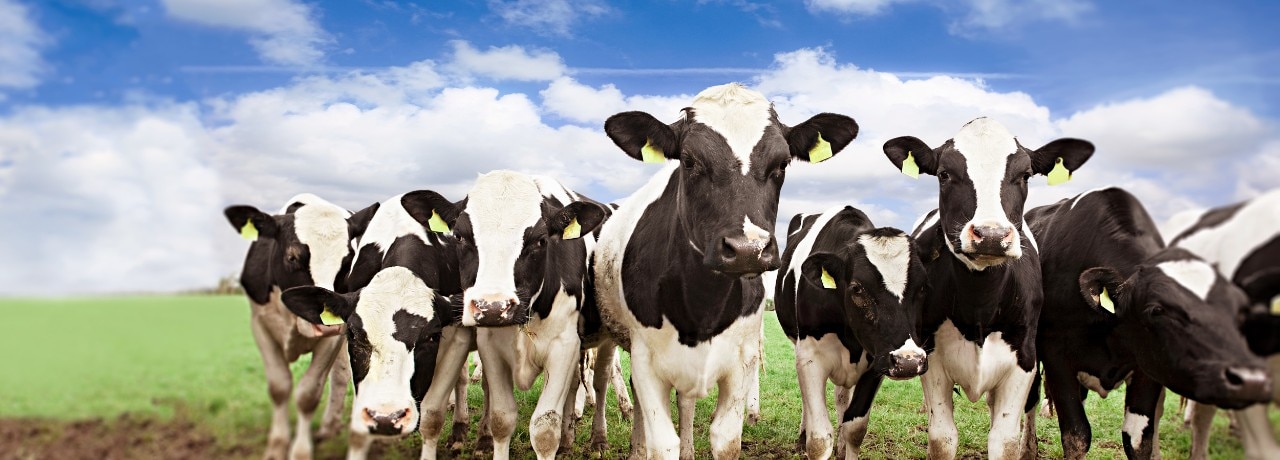An international business expansion strategy case study - NAB
Riding social media is one part of The a2 Milk Company’s successful Chinese formula. We asked which other key ingredients helped lead to today's visible business growth.
New marketing ideas
Your parents probably believed milk was milk. If it didn’t agree with you, you went without or put up with the discomfort. That changed in 2007, with the Australian launch of New Zealand’s a2 Milk Company. We chart the business growth from niche fresh milk producer to international business and export juggernaut.
The company sources its milk from cows that naturally produce only A2 protein milk – which some people find gentler on their digestion. It's since created significant demand for its a2 Platinum® infant formula in China and the rest of south-east Asia. All thanks to an international business expansion strategy. Peter Nathan, a2 Milk Chief Executive of Asia Pacific, says that having a clearly differentiated brand addressing consumer needs was key. However, it was consumers sharing their satisfaction with the product on social media that drove business growth.
“Essentially, without a strong Australian fan base we wouldn't be perceived as a credible and aspirational brand for middle-class China. So, our first challenge was to prove to the Chinese that Australians are using and loving our fresh milk and a2 Platinum infant formula.”
Harnessing social media
The company prepared the ground for its push into China with a marketing plan – advertising heavily in Australia. The aim was to boost sales and credibility on home soil. However, it was the timely opening up of social media between Australia and China that lit the export fuse.
“Chinese with poor milk tolerance who tried the a2 brand in Australia and experienced a physiological benefit told their friends and family in China about it via the new Chinese social media platforms,” Nathan says. a2 Platinum started getting endorsements from Australia and then from China as people had a2 Platinum sent to them.
Like all social media, WeChat – a social media platform that operates like a combination of Facebook and eBay – is a phenomenon that can't be controlled. And just like Facebook, genuine endorsements, as opposed to paid endorsements, are the most powerful.
“To build that advantage we need a very transparent, trusted and genuine brand,” Nathan says. “We invest heavily in evidence-based science and research to build credibility for the well-educated Chinese market and we’re absolutely focused on product quality. It helps demonstrate our quality and market differentiation and reinforces a2’s aspirational appeal to consumers.”
Three doors to china
a2 Platinum uses three main channels to sell into China: online platforms, informal buyers and Chinese mother-and-baby stores.
Chinese e-commerce platforms (or cross-border e-commerce) account for a much larger slice of the retail dollar than in Australia. “They put Australian and New Zealand-labelled products directly onto these ‘free-trade zones’, which allows Chinese consumers to buy Western brands and labels directly via a state-sanctioned e-commerce channel,” Nathan explains.
Informal buyers, or ‘daigou’, shop in Australia on behalf of someone in China. Many daigou buy for multiple consumers using WeChat.
“The daigou channel is very effective for us. By buying directly from Australian stores, they guarantee the Chinese buyer is getting the real deal and not an imitation product,” Nathan says, adding that it's also very good for Australian retail and manufacturing. “The daigou phenomenon ensures production and sales remain here.”
Nathan explains that, unlike in Australia, a2 Platinum doesn’t sell to conventional supermarkets or many pharmacies in China because they have a much smaller share of the market. “Mother-and-baby stores have no real direct equivalent in Australia but in China they're the main retail channel for products like infant formula,” he says.
Importance of quality
For middle-class Chinese, quality is more important than price and this attitude is influenced by ‘emperor syndrome’.
“In much of China you have two sets of grandparents and one set of parents funnelling money for one child,” Nathan says. “Compared to traditional Australian families, you get three or four times more in terms of the capacity to buy.”
The a2 Milk Company is proud that its products are premium priced. “It’s a brand position that resonates very well with the Chinese,” he says. “In fact, we even air freight a small amount of fresh milk into China. That's quite unique and you can imagine the cost to the consumer.” He adds that the next a2 product to launch in China is likely to be an adult powdered milk.
New frontiers
Nathan acknowledges that even the best international shipping clearly is not acceptable in the UK, Europe and the US. There, he says, you need sources of fresh milk, which is why a2 is helping establish a2 dairies: “We’re the fresh milk buyer and hopefully will be able to export the milk within their regions.”
Nathan adds that NAB has been a great partner on the journey. “The market mould we've ended up with is not the one we anticipated. We didn't rely on one very large client. Instead, once we got consumer traction, everyone came to us. NAB stuck with us through that rollercoaster of a journey.”
How to expand your business overseas
If going international matters to you, we're here to make it happen.
Other business moments
Finding the right foreign exchange solution
Here's how to find the right solution for your business.
Tips for growing an international business
Cover your bases with proper planning, preparation – and funds.
Global expansion strategy leads to Asia success
How an Australian dairy became a successful international business.
Related products and services
NAB QuickBiz unsecured business loan
Fast, unsecured business lending made easy. Get access to funds for your business without physical assets as security.
Loans and finance
Starting a business or looking to expand? Our range of business loans, overdrafts, equipment and trade finance options can help you achieve your goals.
Insurance and advice
Explore solutions that can help protect both your business and your employees.
Get in touch
Contact us
Explore our business banking contact information and get support with a wide range of products, services and topics.
Visit a NAB branch
Our business bankers are located all around Australia.
Important information
Apologies but the Important Information section you are trying to view is not displaying properly at the moment. Please refresh the page or try again later.
The information contained in this article is intended to be of a general nature only. It has been prepared without taking into account any person’s objectives, financial situation or needs. Before acting on this information, NAB recommends that you consider whether it is appropriate for your circumstances. NAB recommends that you seek independent legal, financial and taxation advice before acting on any information in this article.




